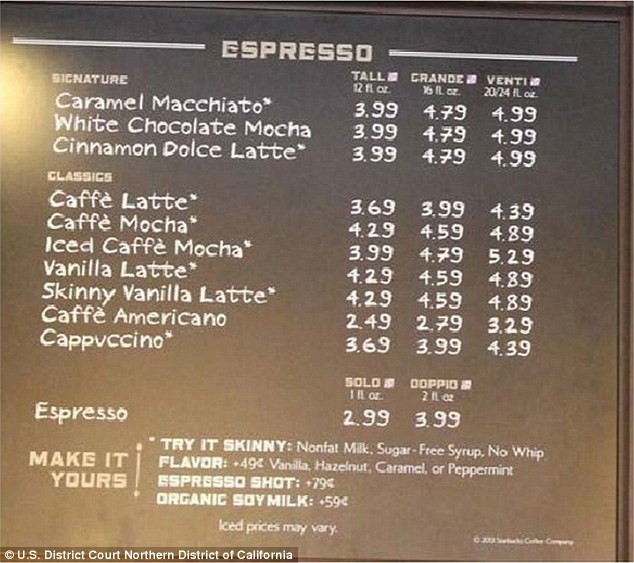Resources
Firm Insights
Thanks a Latté, Starbucks: A Cautionary Tale of [Allegedly] False Advertising
Starbucks recently was sued in the United States District Court for the Northern District of California in a class action alleging, among other things, that the coffee mogul is shortchanging customers by providing less coffee than advertised.
Specifically, the case was filed on behalf of purchasers of Starbucks Lattes, who allege:
Starbucks Lattes are uniformly underfilled [sic] pursuant to a standardized recipe. Tall Lattes are not 12 fluid ounces, Grande Lattes are not 16 fluid ounces, and Venti Lattes are not 20 fluid ounces. Starbucks cheats purchasers by providing less fluid ounces in their Lattes than represented. In fact, Starbucks Lattes are approximately 25% underfilled.
This lawsuit is not the first of its kind. Every day companies are sued all over the country for similar alleged transgressions that, when manifested in the form of a class action lawsuit, lead to costly litigation, negative publicity and potential legal exposure.
Previous False Advertising Lawsuits
In fact, Starbucks was sued earlier this year in the United States District Court for the Northern District of Illinois in a class action alleging similar claims, but with respect to the company’s cold drinks. In essence, the plaintiff there claims that Starbucks’ cold drinks contain too much ice and not enough coffee. Similarly, Subway has been sued more than once in class actions that allege its “Footlong” sandwich does not really measure a foot long.
The Federal vs. State Difference
 It may come as a surprise that all of the false advertising lawsuits mentioned were filed in federal court, but none allege a claim for false advertising under Section 43 of the Lanham Act – the federal statute that governs unfair competition, including false advertising. Rather, each alleges claims based upon false advertising under the applicable state statute and/or common law.
It may come as a surprise that all of the false advertising lawsuits mentioned were filed in federal court, but none allege a claim for false advertising under Section 43 of the Lanham Act – the federal statute that governs unfair competition, including false advertising. Rather, each alleges claims based upon false advertising under the applicable state statute and/or common law.
Although companies in commercial competition with one another may sue or be sued under the Lanham Act, individual consumers generally lack standing to sue under the Lanham Act, and must look to state consumer protection and/or deceptive practices statutes and common law to challenge advertisements alleged to be false or misleading.
False Advertising & Nationwide Companies
- In addition to exercising sensitivity to the requirements of Section 43 of the Lanham Act, they should be aware that they can and will be held accountable under relevant state laws.
- Although many state false advertising statutes apply the same standard as the Lanham Act (for example: Missouri and Connecticut), each state has its own law(s), some of which are quirky and may apply a standard more or less stringent than the Lanham Act.
- For omnipresent companies such as Starbucks and Subway, this means that plaintiffs (or, more likely, plaintiffs’ attorneys) have the ability to “forum shop” for the harshest standard and broadest remedies available.
- For instance, while most state statutes allow for compensatory damages for consumers, some, but not all, allow for punitive damages and attorneys’ fees. Some states allow for injunctive relief, others do not.
- To limit exposure and avoid costly litigation, nationwide companies should have a broad understanding of the false advertising landscape across our fifty states.
- Small companies, too, would be prudent to review the consumer protection laws in the state(s) in which they advertise.
Although the inquiry of whether an advertisement is or may be deceptive often is a murky one, better to have the conversation for the first time within the confines of your boardroom and/or with your attorney than with a class of plaintiffs, a judge and a jury in a federal courtroom.
Sorry, we couldn't find any posts. Please try a different search.
The choice of a lawyer is an important decision and should not be based solely upon advertisements.
Let's Work Together
If you have questions, we’re ready to help you find the answers.
Newsletter Sign-up
Join our mailing list and stay up to date with Capes Sokol!
By clicking the “Subscribe” button you
agree with our Terms and Conditions.